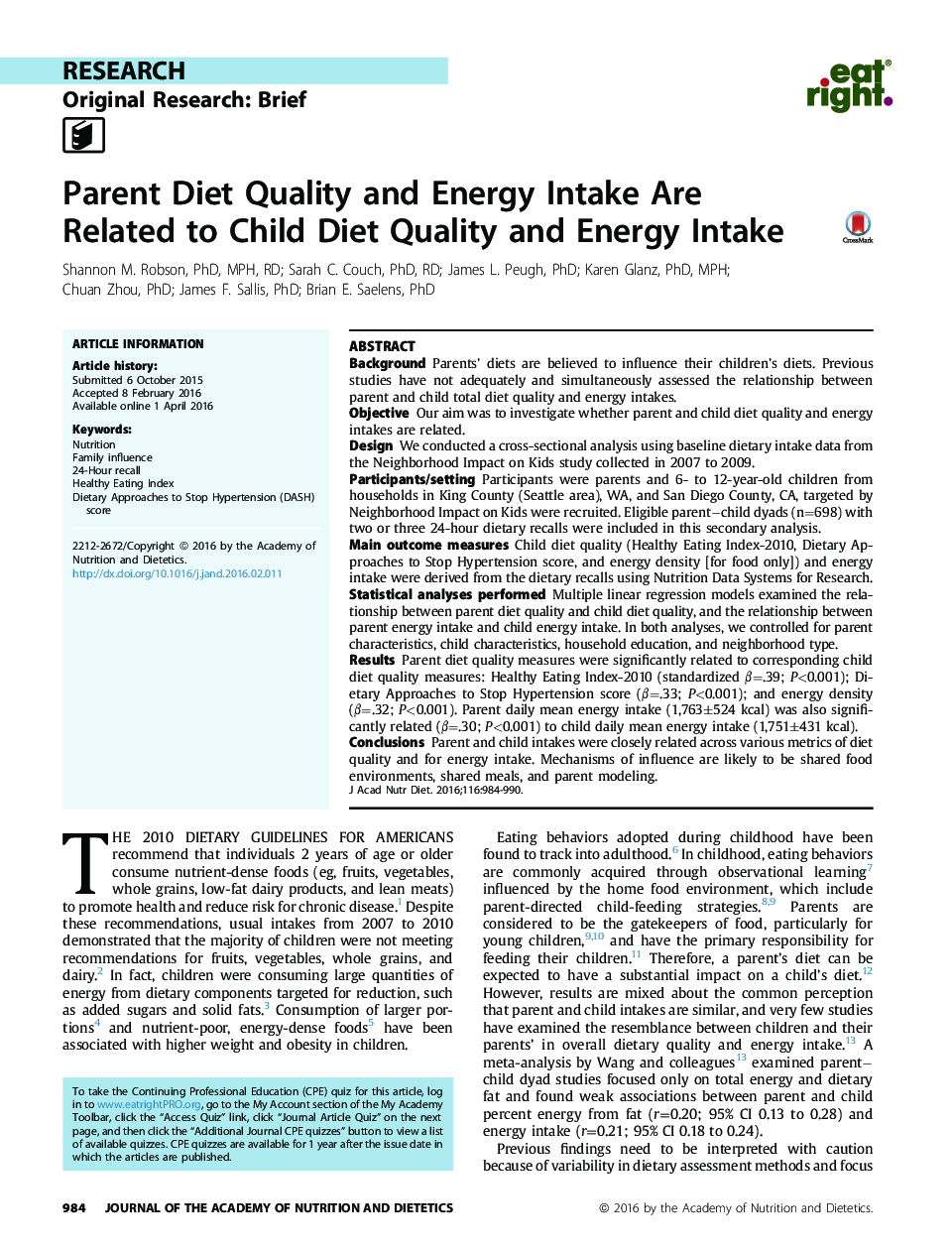| Article ID | Journal | Published Year | Pages | File Type |
|---|---|---|---|---|
| 2656623 | Journal of the Academy of Nutrition and Dietetics | 2016 | 7 Pages |
BackgroundParents’ diets are believed to influence their children’s diets. Previous studies have not adequately and simultaneously assessed the relationship between parent and child total diet quality and energy intakes.ObjectiveOur aim was to investigate whether parent and child diet quality and energy intakes are related.DesignWe conducted a cross-sectional analysis using baseline dietary intake data from the Neighborhood Impact on Kids study collected in 2007 to 2009.Participants/settingParticipants were parents and 6- to 12-year-old children from households in King County (Seattle area), WA, and San Diego County, CA, targeted by Neighborhood Impact on Kids were recruited. Eligible parent−child dyads (n=698) with two or three 24-hour dietary recalls were included in this secondary analysis.Main outcome measuresChild diet quality (Healthy Eating Index-2010, Dietary Approaches to Stop Hypertension score, and energy density [for food only]) and energy intake were derived from the dietary recalls using Nutrition Data Systems for Research.Statistical analyses performedMultiple linear regression models examined the relationship between parent diet quality and child diet quality, and the relationship between parent energy intake and child energy intake. In both analyses, we controlled for parent characteristics, child characteristics, household education, and neighborhood type.ResultsParent diet quality measures were significantly related to corresponding child diet quality measures: Healthy Eating Index-2010 (standardized β=.39; P<0.001); Dietary Approaches to Stop Hypertension score (β=.33; P<0.001); and energy density (β=.32; P<0.001). Parent daily mean energy intake (1,763±524 kcal) was also significantly related (β=.30; P<0.001) to child daily mean energy intake (1,751±431 kcal).ConclusionsParent and child intakes were closely related across various metrics of diet quality and for energy intake. Mechanisms of influence are likely to be shared food environments, shared meals, and parent modeling.
